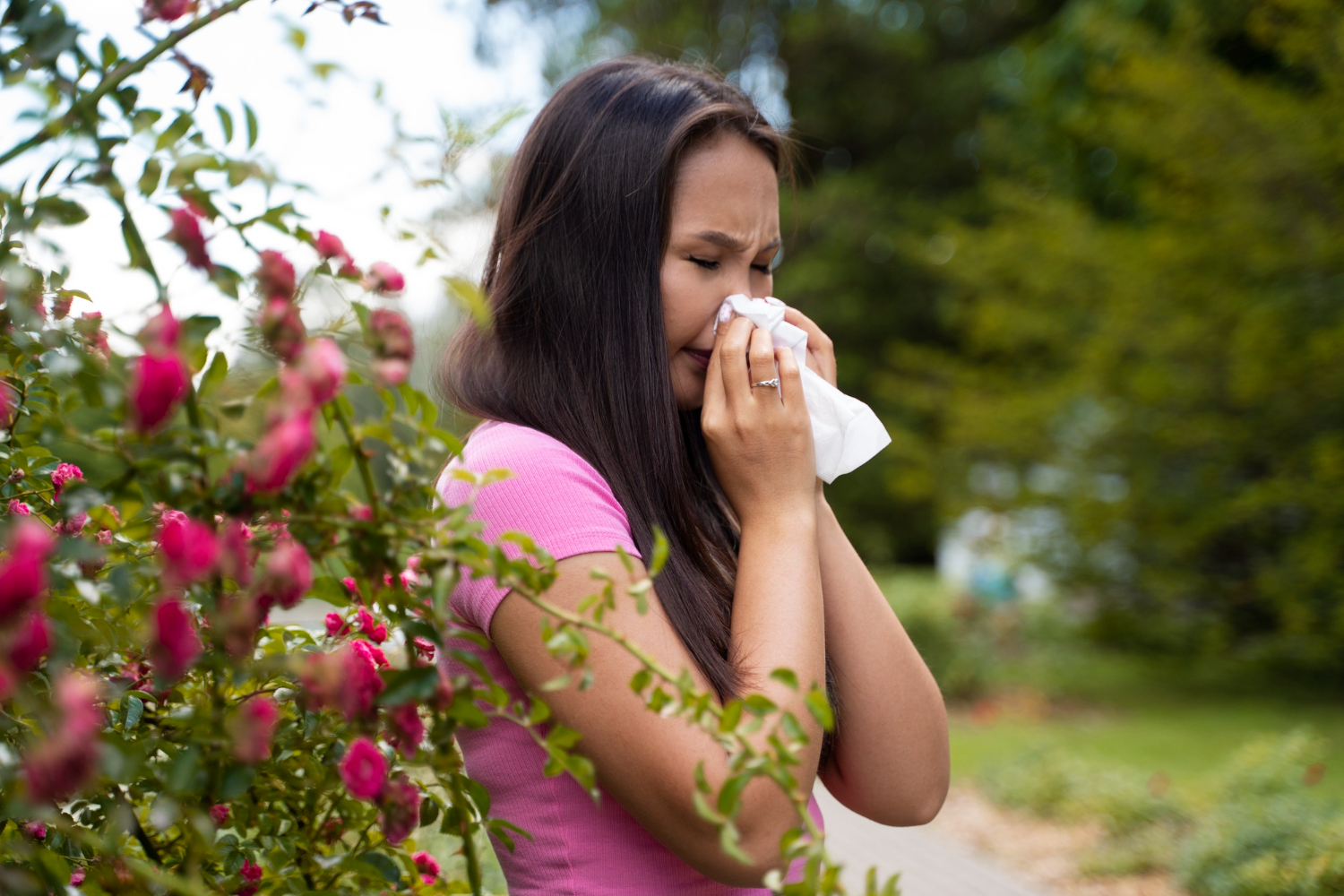
How Long Do Grass Allergies Last
Grass allergies cause significant seasonal discomfort for many people. At Frontier Allergy, we aim to help patients navigate these allergies with expertise and care.
A key question we often get asked is: “How long do grass allergies last?” In this blog, we will provide clarity on the duration of grass allergy symptoms and what triggers them.
Understanding this is vital for effectively managing these allergies.
Whether you directly suffer from grass allergies or are helping someone who does, the insights here will guide you toward relief.
So, let’s get started and understand grass allergies, their seasonal impact, and how Frontier Allergy can assist in alleviating your symptoms.
Understanding Grass Allergies
Grass allergies significantly impact many residents in Austin, Texas, notably during peak pollen seasons in the late spring and early summer.
Symptoms commonly include sneezing, itchy eyes, nasal congestion, asthma exacerbations, and possibly Anaphylaxis – diminishing quality of life.
Local grass species like Bermuda, Johnson, and Bahia grasses release pollen that can instigate allergic reactions in sensitive individuals.
When inhaled, the pollen triggers immune system responses, as the body wrongly categorizes these otherwise harmless substances as threats.
This leads to IgE antibody production and release of histamines and other chemicals contributing to allergy symptoms. Though the duration and intensity vary by person, grass pollen can wreak havoc for months here in Austin.
Our Allergy specialists emphasize pinpointing which grass pollen(s) specifically trigger each patient’s allergies.
This insight allows our experts to strategize management plans incorporating avoidance tactics during expected peak times alongside tailored treatment approaches to alleviate symptoms.
Factors Influencing the Duration of Grass Allergies in Austin
Individual Health
Your overall health plays a significant role in how you experience grass allergies. Conditions like asthma or other allergies can make symptoms worse and last longer.
It’s a personal factor, meaning everyone’s experience with grass allergies can be different, influenced by their unique health landscape.
Geographical Location
Austin’s specific location in Texas means our grass allergy season has its timeline. Typically peaking from late spring to early summer, this period can shift based on local environmental factors.
Understanding Austin’s unique geographical nuances is necessary for anticipating the allergy season.
Seasonal vs. Perennial Allergies
Grass allergies manifest differently for everyone. If your symptoms flare up during specific times, such as spring or early summer, you’re likely facing seasonal grass allergies. This reaction is due to the high grass pollen levels in the air.
However, if symptoms persist year-round, you might be dealing with perennial allergies triggered by a broader range of environmental factors, not just grass pollen.
Weather Conditions
Austin’s weather directly impacts grass pollen levels. Hot, dry conditions amplify pollen dispersal, extending the allergy season, while rain can provide temporary relief by clearing the air.
The local weather pattern is a dynamic factor affecting how long and intensely allergy symptoms are felt.
How long does the Grass Allergy Season last in Austin?
In Austin, the grass allergy season generally spans from late spring into early summer, aligning with grasses’ active growth and pollen production phases.
However, the season’s start and end can vary due to Austin’s specific climate and environmental conditions.
While traditionally, it might kick off in late February and taper off by late June, weather anomalies—such as unseasonably warm winters or extended dry spells—can adjust this expected timeline.
Being prepared for these fluctuations is essential, enabling residents better to manage their symptoms with preventive measures and timely treatments.
How to manage Grass Allergy?
Living with grass allergy season in Austin requires a strategic approach to minimize discomfort and manage symptoms effectively. Here’s how you can manage your allergy:
Avoidance Strategies
Limiting exposure to grass pollen is key to managing allergies. We recommend:
– Keep windows closed during high pollen counts to prevent allergens from entering your home.
– Change clothes and shower after spending time outdoors to remove pollen from your body and hair.
– Stay indoors during peak pollen times, usually early morning or on windy days.
– Wipe down pets after they’ve been outside to remove any grass pollen from their fur. This can help reduce pollen entering your home and reduce your symptoms.
– Avoiding certain foods that might trigger cross-reactions, such as certain fresh fruits and vegetables, can prevent Oral Allergy Syndrome (OAS). Cooking these foods may also help by altering the proteins that cause reactions.
– Use air purifiers in your home, especially in bedrooms, to filter out pollen and other allergens from the indoor air. Choose purifiers with HEPA filters for the most effective removal of pollen particles.
Treatment Options
There are several treatment options to alleviate your symptoms, such as:
– Over-the-counter remedies, such as antihistamines and nasal sprays, can immediately relieve mild symptoms.
– Prescription medications offer more robust solutions for more severe cases.
– Allergy shots (immunotherapy) are a long-term treatment designed to gradually decrease your sensitivity to grass pollen, potentially providing lasting relief.
Customized Care Plans
Every individual’s allergies are unique, and so should their treatment plan. At Frontier Allergy:
– We conduct thorough allergy testing to pinpoint the exact cause of your symptoms.
– We develop a personalized care plan based on your allergy profile, health history, and lifestyle.
– Our goal is to manage symptoms and improve your overall quality of life during allergy season and beyond.
With Frontier Allergy, you can access expert care and a supportive team dedicated to helping you confidently navigate grass allergy season.
We’re here to ensure you enjoy Austin’s beautiful outdoors without the burden of allergy symptoms.
The Role of Allergy Testing in Reducing Allergy Duration
At Frontier Allergy, we believe in a targeted approach to allergy management. Central to this philosophy is the role of allergy testing. Understanding what triggers your symptoms enables us to customize your treatment plan effectively, ensuring it addresses your needs.
Precision Diagnosis
Allergy testing is the first step in pinpointing the exact grass pollens causing your discomfort. Through skin prick tests or specific IgE blood tests, we can identify your allergens with precision.
This knowledge is pivotal in crafting a management strategy that targets your allergens directly, avoiding a one-size-fits-all approach.
Informing Treatment Choices
The results from allergy testing guide us in selecting the most appropriate treatment options for you. Whether it’s choosing the proper medication or determining if you’re a candidate for immunotherapy, the insights gained from testing are invaluable.
They help us fine-tune your treatment plan, focusing on the most effective for your specific allergy profile.
Monitoring Progress
Allergy testing isn’t just about initial diagnosis. It’s also a tool for monitoring your progress over time.
Re-evaluating your sensitivities can inform adjustments to your treatment plan, ensuring it remains aligned with your current needs and lifestyle.
Understanding your allergies at a molecular level enables us to provide you with a personalized approach to reduce your allergic reactions. Through detailed testing and ongoing evaluation, we’re committed to helping you navigate allergy season easily.
Are You Suffering from Grass Allergies?
If you suffer from grass allergy symptoms that worsen during the grass pollen season, contact us at Frontier Allergy.
Dr Neha Reshamwala is a board-certified specialist in Allergy and Immunology, providing progressive testing and treatment options for grass allergies.
Book an appointment today to get a personalized treatment plan!
Frequently Asked Questions
What types of grasses trigger the most allergies?
Timothy, Bermuda, Fescue, Orchard, Rye, and Sweet Vernal have highly allergenic pollen. Some other common grasses that trigger allergies include Bahia, Johnson, and Kentucky Bluegrass.
Can grass allergies be treated?
Yes, grass allergies can be treated with the proper guidance. That includes both preventive measures and medical care.
Once your allergy has been diagnosed, you can undergo treatment options like over-the-counter meds (anti-histamines, nasal sprays, decongestants) and immunotherapy, depending on your case.

Written/Reviewed by: Dr. Neha Reshamwala
NPI number: 1780874578
Page last reviewed: 02/25/2025


 All blog posts
All blog posts





